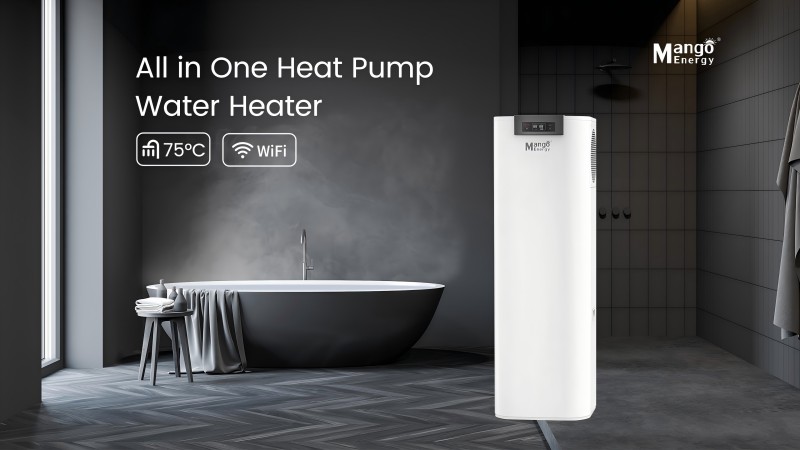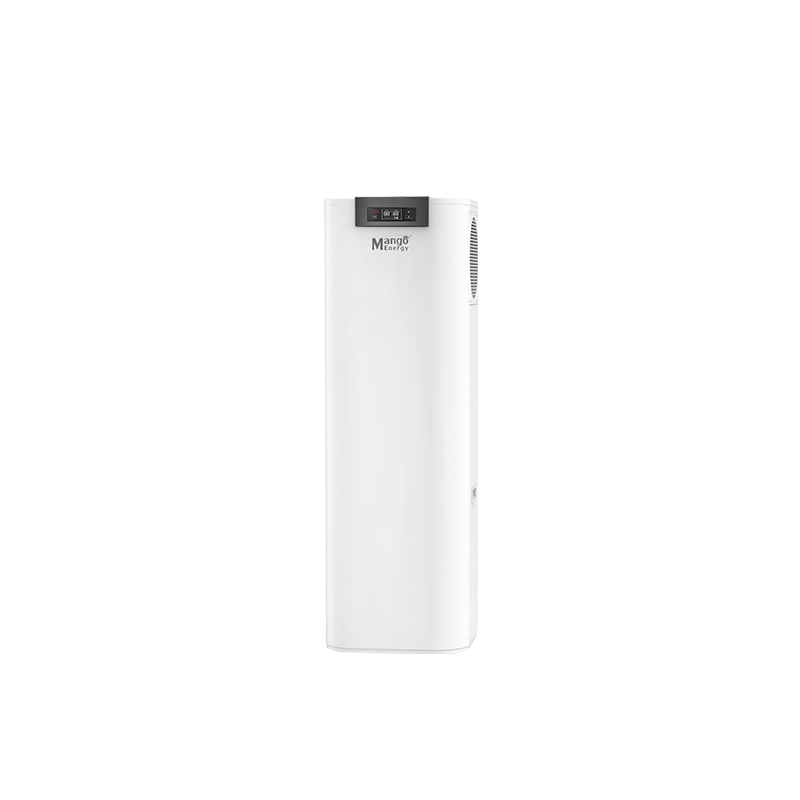
With growing concerns over energy efficiency and sustainability, all-in-one heat pump water heaters are gaining attention as a modern solution for residential and commercial hot water needs. These systems promise significant energy savings compared to conventional water heaters. But do they truly live up to the hype? Let’s explore how these systems work, their energy efficiency potential, and the role of all-in-one heat pump water heater manufacturers and suppliers in promoting this innovative technology.
How Do All-in-One Heat Pump Water Heaters Work?
An all-in-one heat pump water heater operates by transferring heat from the surrounding air to heat water, rather than generating heat directly through electricity or gas combustion. This process uses a compressor and refrigerant system to absorb heat energy from the air and transfer it to the water stored in the tank.
Key features of all-in-one systems include:
- Integrated Design: The heat pump and water tank are combined into a single unit, simplifying installation and reducing the need for extra components.
- Energy Efficiency: By using ambient air as a heat source, these systems consume significantly less electricity compared to traditional water heaters.
- Versatility: Suitable for various climates, though performance may vary in extremely cold conditions.

Why Are All-in-One Heat Pump Water Heaters Energy Efficient?
The primary reason for the efficiency of these systems lies in their use of renewable energy. Unlike conventional water heaters that rely solely on fossil fuels or electric resistance heating, heat pumps extract energy from the environment.
Energy Savings in Numbers:
- Heat pump water heaters can be 2 to 4 times more energy-efficient than standard electric water heaters.
- Many models have an Energy Factor (EF) or Uniform Energy Factor (UEF) of 2.0 or higher, meaning they deliver at least twice the hot water for the same energy input as conventional systems.
Cost Savings Over Time:
While the upfront cost of an all-in-one heat pump water heater may be higher than traditional systems, the long-term savings on energy bills often offset the initial investment. This makes them an attractive option for environmentally conscious homeowners and businesses.
Role of Manufacturers and Suppliers in Promoting Energy Efficiency
The growth of the all-in-one heat pump water heater market is driven by advancements from manufacturers and the efforts of suppliers to make these systems widely available. Let’s take a closer look at their contributions:
1. Manufacturers Leading Innovation
- Energy-Efficient Designs: Leading all-in-one heat pump water heater manufacturers continually refine their products to enhance energy efficiency and reliability.
- Smart Features: Integration of smart controls for better energy management and user convenience.
- Sustainability Goals: Many manufacturers prioritize eco-friendly refrigerants and materials, further reducing the environmental impact.
2. Suppliers Ensuring Accessibility
- Global Reach: Reliable all-in-one heat pump water heater suppliers play a crucial role in distributing these systems to diverse markets.
- Customer Education: Suppliers often educate customers on the benefits of these systems, promoting informed purchasing decisions.
- After-Sales Support: Ensuring long-term performance and customer satisfaction through maintenance services and technical support.

Limitations to Consider
While all-in-one heat pump water heaters are highly energy-efficient, there are a few considerations to keep in mind:
- Initial Costs: The upfront price can be higher than traditional water heaters, though incentives and rebates can help reduce this barrier.
- Performance in Cold Climates: Efficiency may decline in extremely cold environments, necessitating backup heating solutions.
- Space Requirements: These systems require adequate ventilation to function effectively, which may not be ideal for all settings.
Conclusion: A Worthy Investment for Energy Savings
An all-in-one heat pump water heater offers substantial energy savings and aligns with global efforts to reduce carbon footprints. With innovative designs from top all-in-one heat pump water heater manufacturers and widespread availability through trusted suppliers, these systems are becoming a preferred choice for both residential and commercial applications.
For those looking to save on energy costs and contribute to a greener future, investing in an all-in-one heat pump water heater is a practical and sustainable solution. However, assessing specific needs, climate conditions, and available incentives will help you maximize the benefits of this advanced technology.
By partnering with reliable all-in-one heat pump water heater suppliers, consumers can ensure they receive high-quality products that deliver long-term energy savings and environmental benefits.



